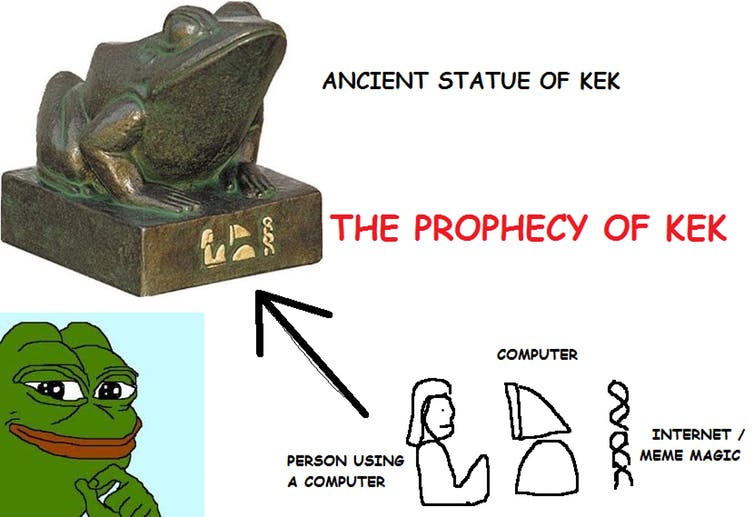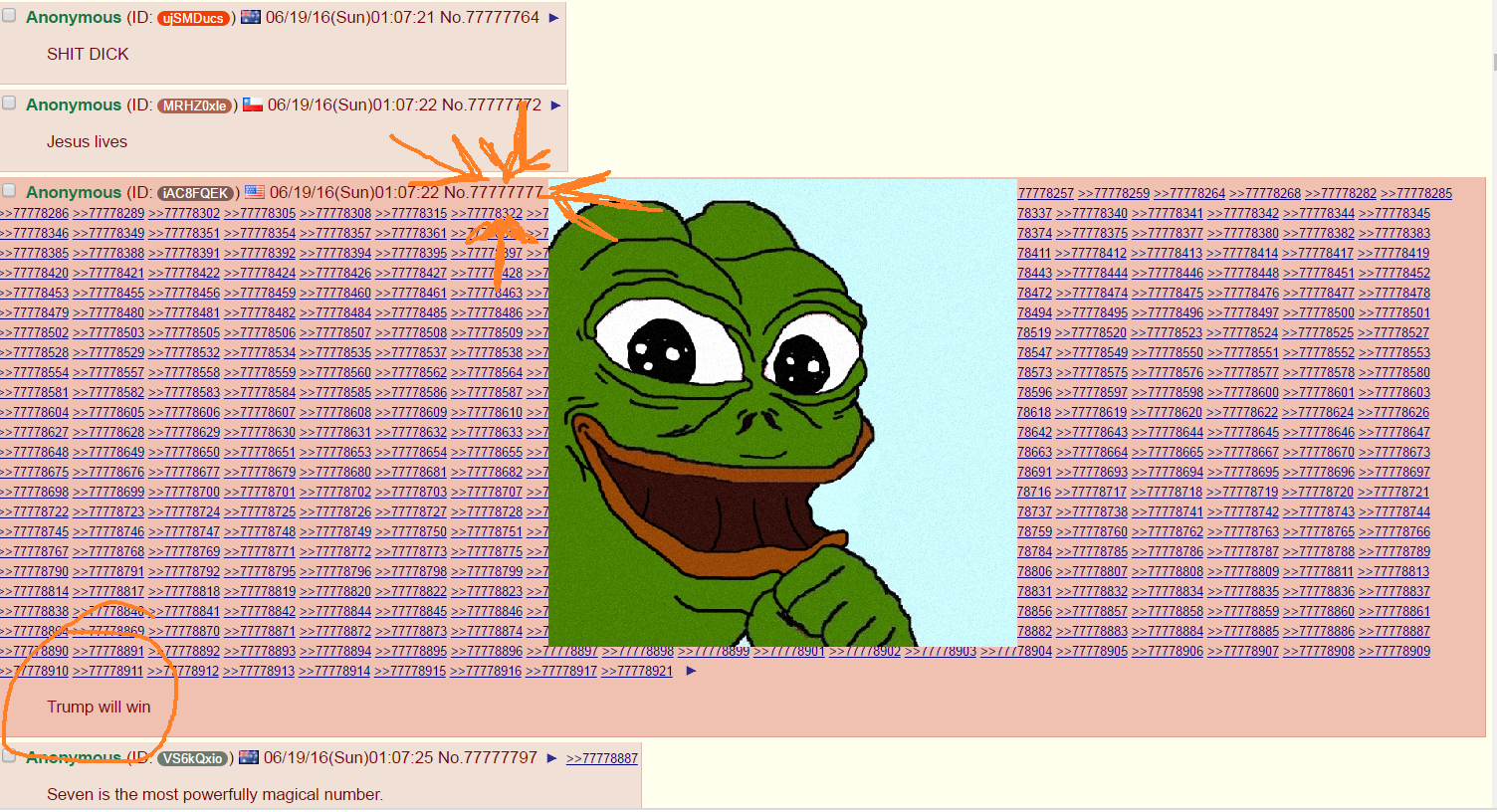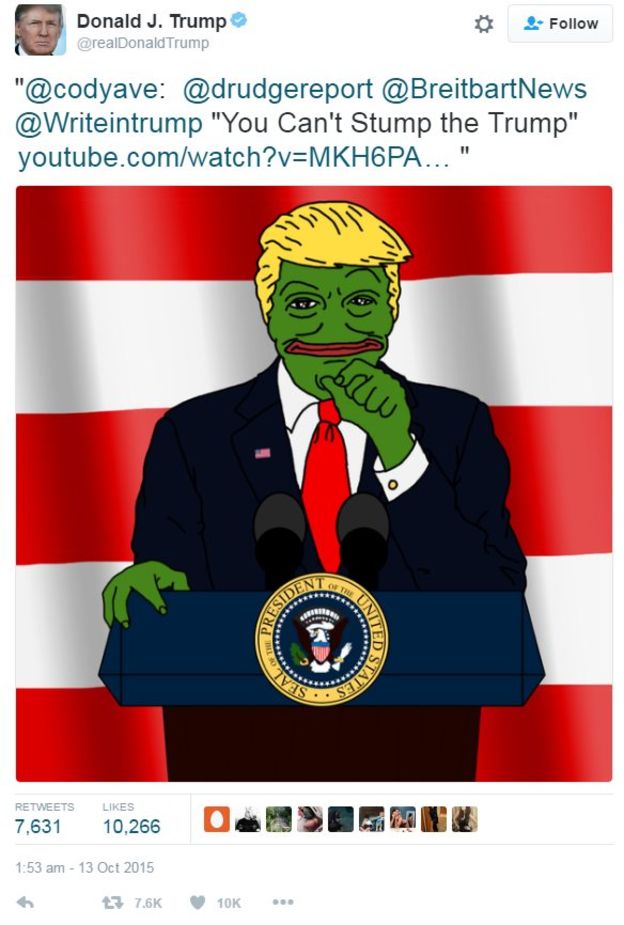What do obscure numeral exoteric theories have in common with white suprematism, Kek the Egyptian god of chaos, Pepe, an innocent character of a popular comic strip, and, well… Donald Trump?

Daniel Keller, an artist and writer born in Detroit and based in Berlin, decided to dive into the meanders of an uncanny mix of user subcultures and conspiracy theories which, at some point during the last US presidential electoral campaign, crosspollinated propaganda machines way beyond the familiar.

The more Keller tracked down this strangely mutating cultural phenomenon, the more he realized that there was a connection between new and old radical right-wing communities, certain online user subcultures (among them some centered around conspiracy theories and homemade, digitally-enhanced exoterisms), and, unexpectedly, some fringes of high-tech utopianism. What others simply filed under hate speech, misogyny, racism or just plain sociopathy, started to appear to Keller under a completely different light.
Young “beta male”’s rebellion against the “normies” (roughly: corn-bred heterosexuals, brain-dead consumers, passive victims of consumer culture and liberal propaganda) was actually merging with a twisted vision of a high-tech utopian future where superior forms of intelligence would eventually take over or be the perfect tool for paranoid persecutions. According to Keller, the Sovereign Individual - an idealized neoliberal knowledge worker, liberated by the technology from the grip of geopolitics, slightly turned into the Targeted Individual, an utterly unremarkable, paranoid and narcissistic victim of the contemporary.

Keller started to investigate and document what appeared to be a new “culture war” that was redefining the old idea of counterculture. Not concerned by upset liberals accusing him to dignify the alt-right and hate speech, he actually claimed scavenging into deranged online communities and potentially disturbing material as something necessary to understand such an earthquake in popular cultures.

Besides, Keller was providing a strong rationale about the role of networked communities and technological utopianism in such a socially regressive phenomenon. In fact, crappy memes, crazy conspiracy theories and fake news ultimately had become part of a larger propaganda battle, engaged by technology-savvy organizations like the then obscure company Cambridge Analytica. Self-defined their activity as “global election management”, the company analyzed massive users’ public data sets to develop an apparently innovative behavioral microtargeting. “Meme magic” was thus merging with the power of real-life influencing networked machines.
What’s really at stake now - Keller suggests - is key to users, citizens, or artists alike: how can we regain political and creative agency in this new culture war?
Daniel Keller’s work has been exhibited at several institution including The New Museum, New York; Musée d’Art Moderne de la Ville de Paris; Kunsthalle Wien, Vienna; Museum of Modern Art, Warsaw; Fridericianum, Kassel; KW, Berlin; and The Zabludowicz Collection, London. He’s given talks at The Institute of Contemporary Arts, London; DLD Conference, Munich; CODE_n Festival at ZKM, Karlsruhe; Swiss Institute, NYC and Stedelijk Museum, Amsterdam.